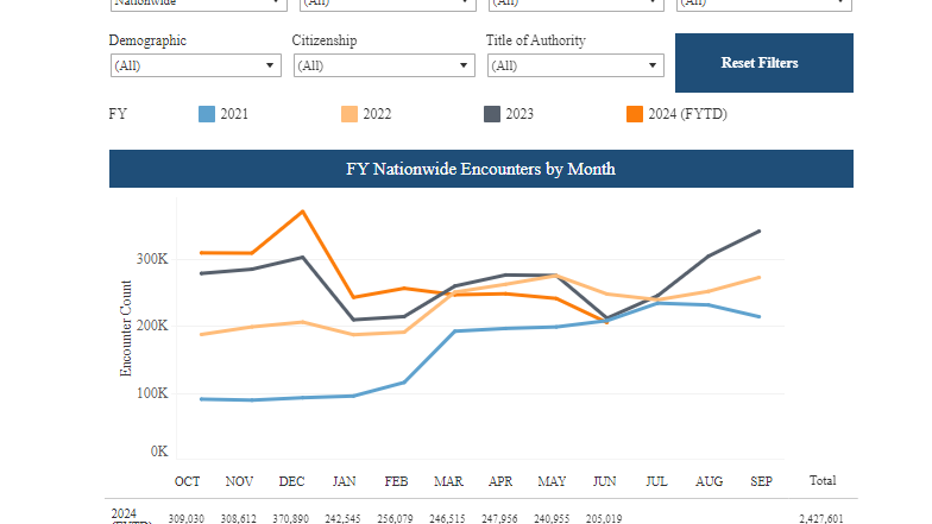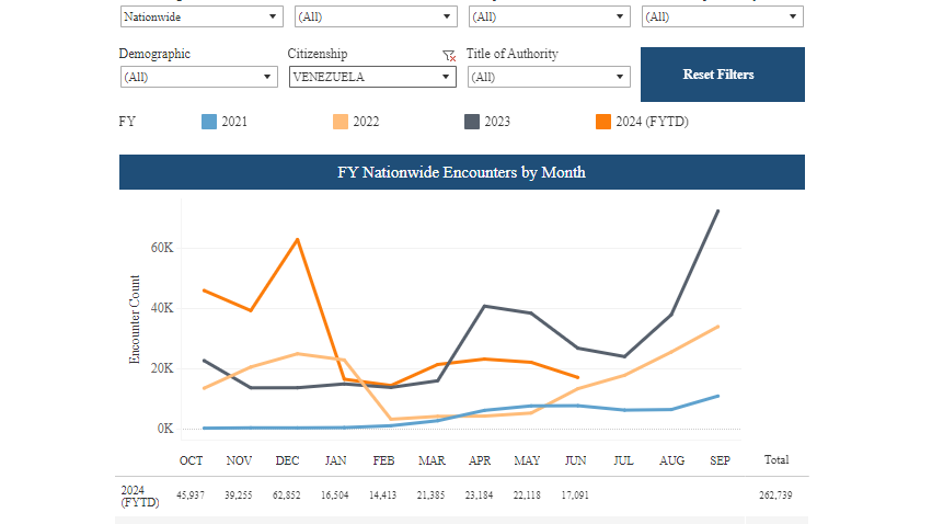Former Border Patrol sector chief believes migrant influx to come ahead of elections
HOUSTON - With the November elections approaching, a former Border Patrol chief has indicated that the outcome could drive changes in migrant activity at the U.S.-Mexico border.
Victor Manjarrez, who previously oversaw Border Patrol operations in the Tucson and El Paso sectors, observed that elections tend to influence border crossings.
"Almost every election cycle, I can’t think of an election cycle that hasn’t had an impact," Manjarrez said. "You'll see the numbers start to go up or start to come down."
According to U.S. Customs and Border Protection statistics, arrests for illegal border crossings dropped by 29 percent in June, marking the lowest monthly level since President Biden took office. Despite the recent decrease, Manjarrez emphasizes that current figures are higher than in past decades.

Migrant encounters at the border typically fluctuate throughout the year, but historically increase during an election year, particularly surrounding the election period.
Manjarrez pointed to the potential impact of campaign rhetoric.
"The world pays attention, and we do not intentionally send signals, but that’s exactly what we do and not just to Central and South America but globally," he stated.
Featured
Jocelyn Nungaray murder: Texas lawmakers respond to 12-year-old girl's death with immigration bill
One month following the assault and murder of 12-year-old Jocelyn Nungaray which sparked national headlines, Texas lawmakers have taken legislative action that could lead to significant changes in immigration enforcement.
One pressing concern arises from Venezuela, with Manjarrez identifying Venezuelan gangs as a new significant threat, likening their potential for violence, threats, and terrorism to that of the notorious MS-13.
"They're a transnational criminal organization," Manjarrez asserted. "Calling them a gang is a disservice to their reach and their complexity."
READ MORE: ‘El Mayo’ Zambada, a leader of Mexico’s Sinaloa cartel, arrested by US authorities
In 2023, there were 334,914 Venezuelan migrant encounters, and in the fiscal year to date, in 2024, there were 262,739 encounters, according to CBP.

The former chief's observations highlight the broader implications of political events on global migration patterns and the multifaceted challenges faced by border security forces.


